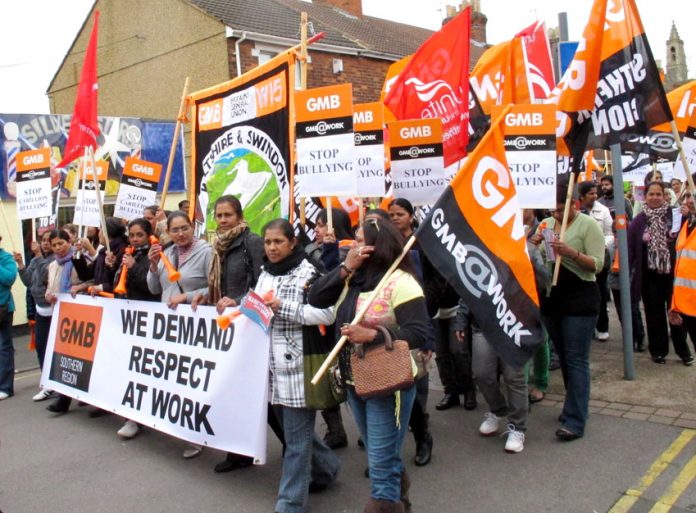‘IT’S A BROKEN system. As the ruins of Carillion lie around us, will the prime minister act to end the costly racket of the relationship between government and some of these companies?’ Labour leader Corbyn asked Prime Minister May in the House of Commons yesterday.
May ignored the question responding: ‘A third of Carillion contracts with the government were let by the Labour government.’ This of course was under Blair and Brown.
Prime Minister’s Questions opened with Newcastle North Labour MP Catherine McKinnell asking: ‘I’m concerned for the 1,400 Carillion apprentices, some of whom I have met locally. It’s not good enough to pass the buck. Will the prime minister guarantee today that every one of those apprentices will be able to complete their training and that they will be paid?’
May gave no such guarantee, replying only that ‘the minister with responsibility for that will be looking very carefully at what action can be taken.’
Corbyn declared: ‘Between July and the end of last year the share price of Carillion fell by 90%, three profit warnings were issued. Unbelievably, some contracts were awarded by the government even after the third profit warning … Tory MPs might shout, but the reality is, as of today, 20,000 Carillion workers are very worried about their future and for many of them the only recourse tonight is to phone a DWP hotline.
‘The frailties were well known. Hedge funds were betting against Carillion since 2015, the RBS bank, state-owned, making provision against Carillion last year … Carillion went into liquidation with debts we now understand to be £1.29bn, a pension deficit of £600m and at the same time this company was paying out ever-increasing shareholder dividends, wildly excessive bonuses to directors and today, 8,000 Carillion workers on private sector contracts will no longer be paid.
‘The chief executive is going to be paid however for another ten months.
‘One rule for the super-rich and another for everybody else. Can the prime minister assure the House today that not a single penny more will go to the chief executive or directors of this company?’
May would give no such assurance.
• The government-backed Royal Bank of Scotland (RBS) knifed Carillion three days before it was forced to call in liquidators. The bank continues to be majority-owned by the government almost 10 years after its £45.5bn bailout.
In a witness statement filed at the High Court by Keith Cochrane, and seen by Sky News, its interim chief executive states it went bust carrying more than £2.2bn of financial liabilities. Cochrane in his statement accused RBS of taking ‘unilateral action which in the company’s view undermined the group’s efforts to conserve cash’.
RBS had already taken an impairment charge of £151m relating to Carillion at its third-quarter results last year, and the HS2 rail link contractor’s lenders were facing total losses of around £2bn.
Cochrane in his witness statement said that RBS informed Carillion last Friday that it wanted the company to pre-fund supplier payments made through the bank, which meant it would need to make those payments two days earlier than cashflow forecasts had assumed.
Cochrane said that this negatively impacted Carillion’s liquidity by between £2m and £20m.
RBS insisted that this revised arrangement ‘would be in place until support from the government had been agreed and that the terms of this support would determine whether other uncommitted facilities with RBS would be withdrawn’.
Cochrane’s statement, made on behalf of the entire Carillion board, also discloses that the company begged Her Majesty’s Revenue and Customs for support in the form of payment deferrals on tax liabilities at a meeting on 9 January.
According to Cochrane, Carillion wrote to the government on Saturday requesting an unquantified sum of short-term funding. The letter ‘noted that should (the government) or creditors refuse to provide such support, the company may be forced to conclude that there is no longer a reasonable prospect of it avoiding insolvent liquidation, and the importance of adequate contingency planning’. That request was rejected at a meeting on Sunday.
